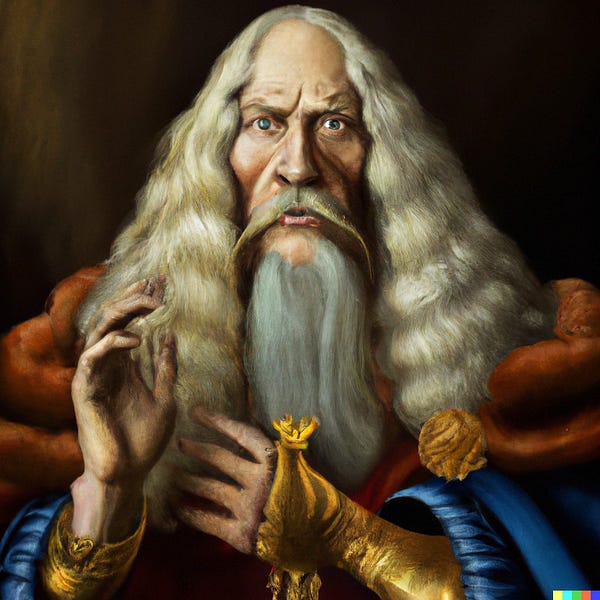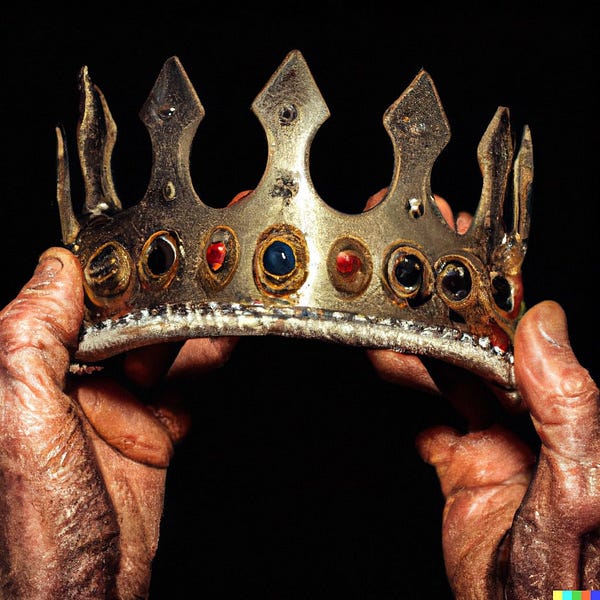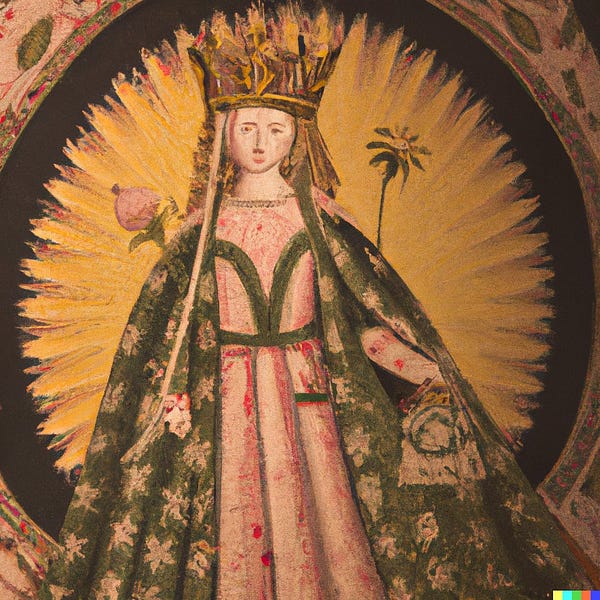



DALL*2 was strange and wonderful. I deeply appreciate the privilege of using this tool. Special thanks to @johnschulman2 on Twitter whose referral got me access.
My primary source was Germany and the Holy Roman Empire: Volume I: Maximilian I to the Peace of Westphalia, 1493-1648 by Joachim Whaley. It was immensely useful. Thanks to @Historycourses on Twitter for the recommendation.
I also reread Machiavelli’s The Prince and the 1932 biography “Talleyrand” by Duff Cooper—the wily, disloyal French diplomat was an inspiration for this game. Stanley Kubrick’s film Barry Lyndon was another inspiration.
Best map site I found: https://germanhistorydocs.ghi-dc.org/maplist.cfm?section_id=7
Other links of note:
Knights, feuds, and jousts: https://hbdchick.wordpress.com/2013/03/19/feuds-tournaments-and-reproductive-success-in-medieval-germany-franconia/
Fashion of 1520s: https://fashionhistory.fitnyc.edu/1520-1529/
Timeline of the Holy Roman Empire http://www.timelines.ws/countries/HOLY_ROMAN_EMP.HTML
Faust legends: https://sites.pitt.edu/~dash/faust.html#1587
https://en.m.wikipedia.org/wiki/Prince-elector
https://en.m.wikipedia.org/wiki/Imperial_Diet_(Holy_Roman_Empire)
Hans Böhm: https://chandlerozconsultants.wordpress.com/tag/the-revolutionary-of-the-rhine/
Hapsburgs and the Popes:
https://www.zum.de/whkmla/period/reformation/papalrelations.html
https://en.m.wikipedia.org/wiki/Ottoman–Habsburg_wars
El Dorado: https://api.nationalgeographic.com/distribution/public/amp/history/article/el-dorado
https://en.m.wikipedia.org/wiki/Ferdinand_I,_Holy_Roman_Emperor
https://en.m.wikipedia.org/wiki/Jakob_Fugger
How Bills of Exchange worked in medieval times.
https://www.economics.utoronto.ca/munro5/BILLEXCH.htm
Banking in the Middle Ages
Peasants war
https://en.m.wikipedia.org/wiki/German_Peasants'_War
https://en.m.wikipedia.org/wiki/Twelve_Articles
Count Palatine Otto II was a real person.
https://en.m.wikipedia.org/wiki/Old_Wolfstein_Castle
https://en.m.wikipedia.org/wiki/Count_palatine
https://en.m.wikipedia.org/wiki/List_of_Counts_Palatine_of_the_Rhine
https://en.m.wikipedia.org/wiki/Otto_II,_Count_Palatine_of_Mosbach-Neumarkt
https://wiki.acervolima.com/otto-ii-of-the-palatinate-mosbach-neumarkt/
Most common male names
https://heraldry.sca.org/names/germmasc.html
Reformation links
https://en.m.wikipedia.org/wiki/Martin_Luther
https://en.m.wikipedia.org/wiki/Huldrych_Zwingli
https://en.m.wikipedia.org/wiki/Philip_Melanchthon
https://en.m.wikipedia.org/wiki/Philip_I,_Landgrave_of_Hesse
1519 election
https://www.newyorker.com/news/amy-davidson/how-to-finance-an-emperors-election/amp
https://en.m.wikipedia.org/wiki/1519_Imperial_election
https://old.reddit.com/r/AskHistorians/comments/5eaehm/in_the_game_europa_universalis_4_players_who/
There were also a few interesting episodes of the era that I wasn’t able do to squeeze in:
the Knights’ Revolt: https://en.m.wikipedia.org/wiki/Knights%27_Revolt
the utopian, polygamous Munster Rebellion: https://kyleorton.co.uk/2021/02/21/the-munster-millenarians-anabaptism-and-the-radical-reformation/
The sack of Rome by the Emperor’s unpaid mercenaries: https://en.m.wikipedia.org/wiki/Sack_of_Rome_(1527)
Saubannerzug (rebellion of Swiss mercenaries)https://en.m.wikipedia.org/wiki/Saubannerzug
Infamous mercenary Götz von Berlichingen: https://militaryhistorynow.com/2015/07/06/the-iron-hand-meet-the-middle-ages-toughest-knight/
William Tyndale, translator of the Bible into English. Martyred. https://www.christianity.com/church/church-history/timeline/1501-1600/translator-william-tyndale-strangled-and-burned-11629961.html?amp=1


